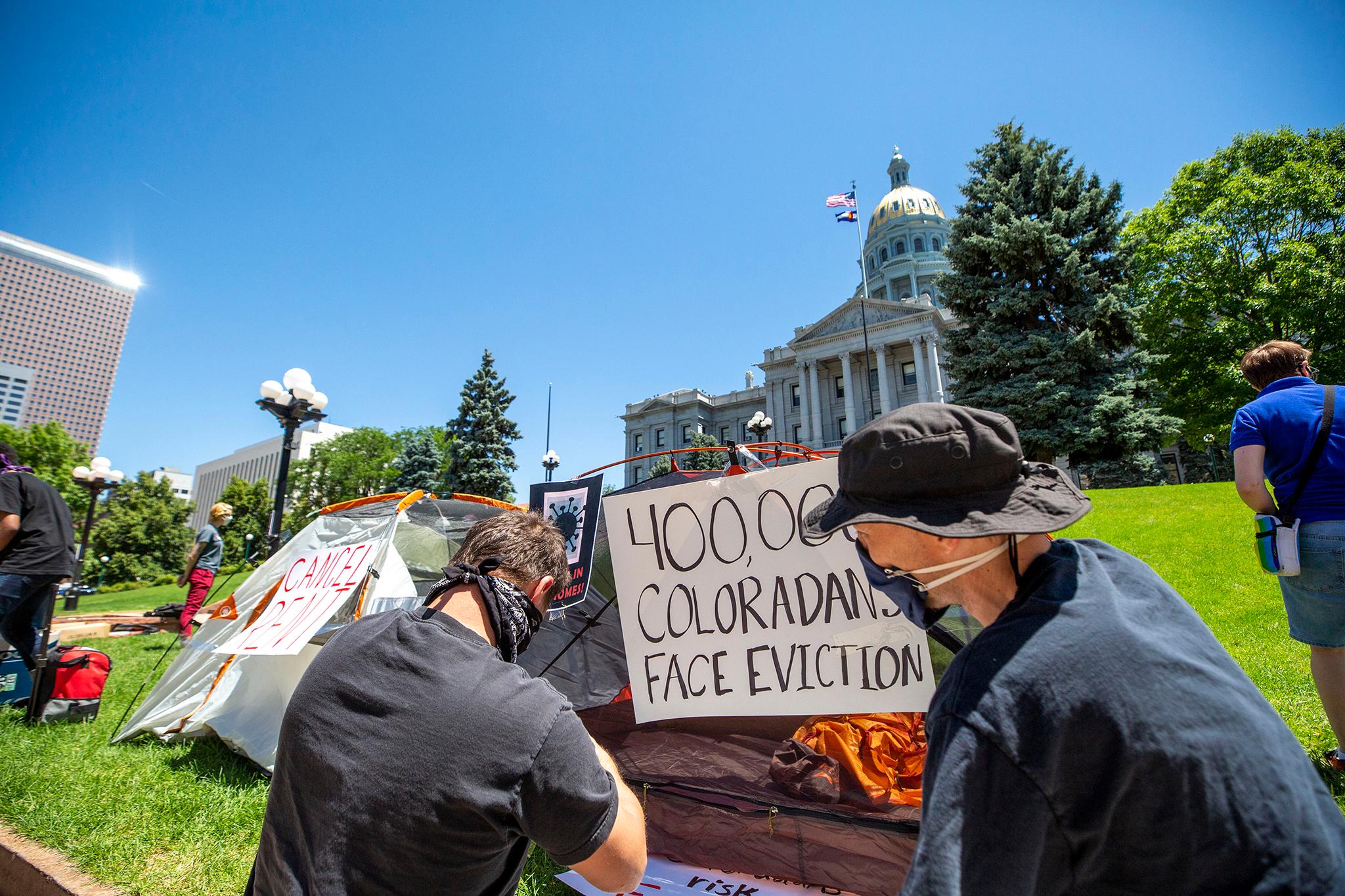The national eviction moratorium is ending Saturday, but thanks to a community effort, some East Colfax residents who live in affordable housing and are behind on rent will still be protected from evictions.
A coalition of nonprofit affordable housing providers, community groups and neighborhood organizations met Friday to announce their own local moratorium on evictions that will be in place until December 31, 2021. Any tenant that can show they've applied to Colorado's Emergency Rental Assistance Program, or ERAP, for rent aid will not be evicted for non-payment and won't accrue late fees.
Hope Communities and Rocky Mountain Communities were the two nonprofit housing providers adopting the moratorium for their combined 430 housing units. Some 1,300 people live in those units.
The groups are hoping other landlords in the area will join the effort.
East Colfax is one of Denver's poorest neighborhoods. There's also a large non-English speaking population, which has faced barriers when applying for assistance.
"The community, as probably everybody knows, is vibrant and very diverse," Hope Communities CEO Sharon Knight said. "It also faces a lot of challenges and obstacles to success. We know that we are stronger together in fighting this battle and confronting the systemic issues that face the people in the East Colfax community."
The East Colfax community has been proactive in protecting residents since the start of the pandemic: They first created an eviction moratorium on March 24, 2020, before federal or state protections were created. This effort ended on May 31, 2020, once other protections kicked in.
Colorado's moratorium ended in January, so when the national moratorium ends Saturday, Denver residents will have little protection.
About 12 percent of Denver renters are behind on payments, according to data from The New York Times. They owe nearly $4,500 on average.
The majority of Colorado's ERAP funds, totaling $10.9 million, have been approved for the city. But that approval doesn't mean the rent payments have been made. According to Ro Si Be, a renter from East Colfax involved in grassroots community organizing, many residents haven't gotten their payments.
"We have community members who were approved by the state in May and they still have not received the money," Ro Si Be said. "What will we do if we don't get emergency assistance on time?"
The state has claimed that attempts at fighting fraud has caused the delays.
Gov. Jared Polis took action on evictions, but it's not exactly what leaders were hoping for.
More than 80 elected officials and local organizations asked Gov. Jared Polis this week to extend the eviction moratorium until Sept. 30 for people who applied for ERAP funds but are still waiting. Denver Mayor Michael Hancock and 13 other mayors also signed the letter.
Gov. Polis responded by signing an executive order Friday that gives renters who had applied for assistance an extra 30 days of protection.
Other states have followed similar paths: Nevada recently passed a law giving renters under the threat of eviction a 30-day buffer, and in California, the moratorium has already been extended until the end of September.












